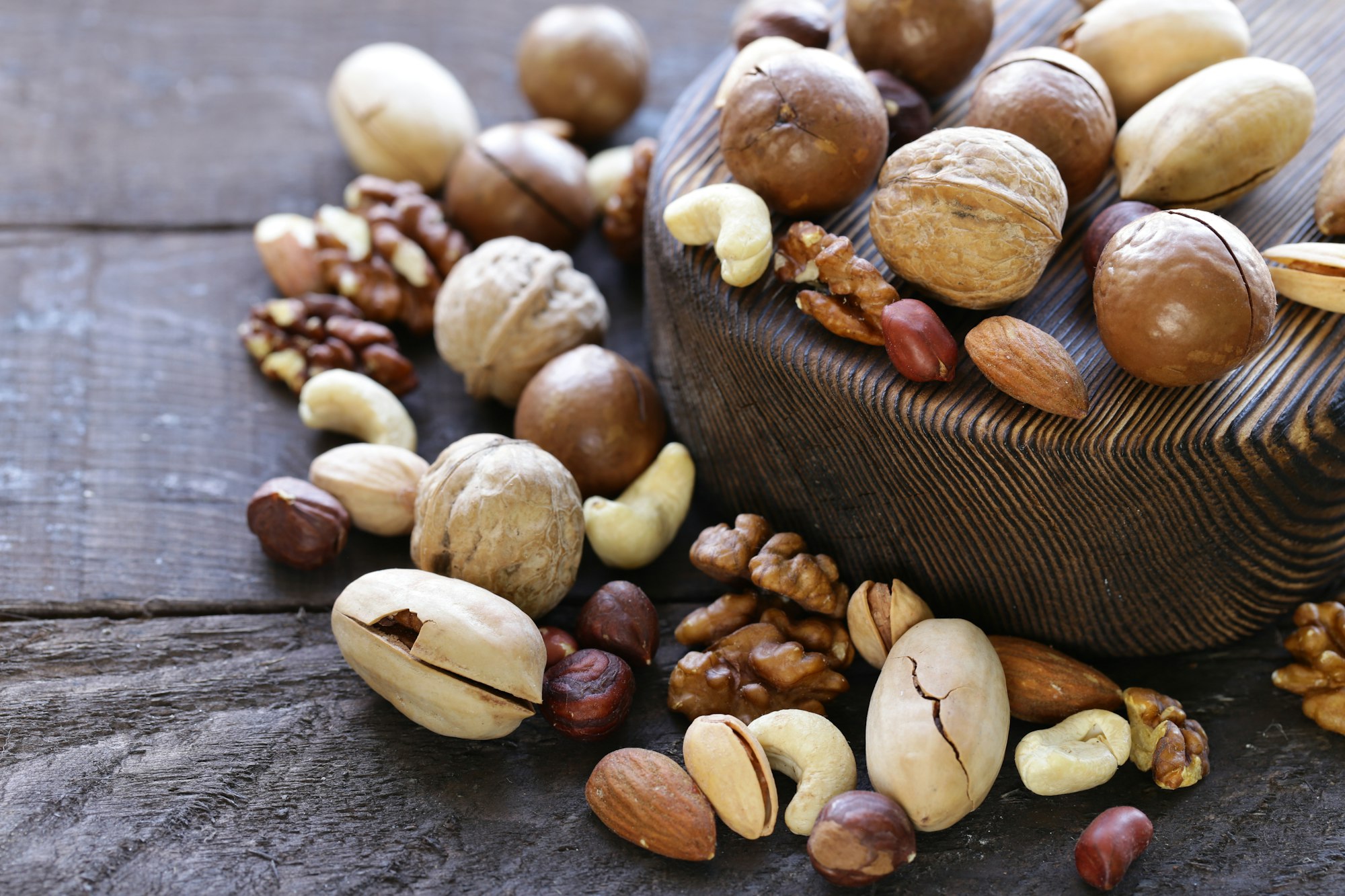Unveiling the Nutty World: A Journey Through Interesting Facts About Nuts
Nuts are not just tasty snacks; they’re packed with nutrition, history, and surprising trivia. From ancient civilizations to modern health trends, these little powerhouses have played a significant role in human diet and culture. Let’s explore some of the most interesting facts about nuts that will make you appreciate these crunchy delights even more.
The Nutty Family Tree: Varieties and Classifications
Before we dive into the fascinating world of nut facts, let’s clarify what we mean by “nuts.” Botanically speaking, true nuts are dry fruits with a single seed, where the fruit doesn’t open to release the seed. However, in culinary terms, we often include many other edible kernels in the nut category. Here’s a quick overview:
- True nuts: Hazelnuts, chestnuts, acorns
- Drupes: Almonds, walnuts, pecans
- Legumes: Peanuts
- Seeds: Pumpkin seeds, sunflower seeds (often grouped with nuts)
Health Benefits: Why Nuts Are Nature’s Nutritional Powerhouses
One of the most interesting facts about nuts is their impressive nutritional profile. These small packages are bursting with:
- Healthy fats
- Protein
- Fiber
- Vitamins and minerals
Research has shown that regular nut consumption can lead to various health benefits, including:
- Improved heart health
- Better weight management
- Reduced inflammation
- Enhanced brain function
- Lower risk of certain cancers
The Walnut Wonder: A Nutty Brainteaser

Among all nuts, walnuts stand out for their unique properties. Interesting facts about walnuts (https://factsgem.com/facts-about-walnut/) reveal that they have a striking resemblance to the human brain. This similarity is not just coincidental; walnuts are indeed beneficial for brain health. Here are some fascinating walnut facts:
- Walnuts contain omega-3 fatty acids, which are crucial for brain function.
- They are rich in antioxidants, helping protect brain cells from oxidative stress.
- Eating walnuts may improve cognitive function and reduce the risk of neurodegenerative diseases.
From Ancient Times to Modern Tables: The Historical Journey of Nuts
The interesting facts about nuts extend far beyond their nutritional value. These tiny treasures have a rich history dating back thousands of years:
- Ancient civilizations: Nuts were a staple food for many ancient cultures, including the Greeks, Romans, and Chinese.
- Currency and trade: Some nuts, like almonds, were once used as a form of currency in certain regions.
- Religious symbolism: Many nuts hold significance in various religions and mythologies.
- Exploration and discovery: The spread of nut varieties played a role in global exploration and trade routes.
Nutty Innovations: Modern Uses Beyond Snacking
While nuts are delicious on their own, their versatility extends far beyond simple snacking. Here are some innovative uses for nuts in the modern world:
- Nut milks: A popular dairy alternative
- Nut flours: Gluten-free baking options
- Nut oils: Used in cooking and cosmetics
- Nut-based proteins: Plant-based meat alternatives
- Nut shells: Used in various industrial applications
The Environmental Impact: Nuts and Sustainability
An often-overlooked aspect when discussing interesting facts about nuts is their environmental impact. Here’s a brief overview:
| Nut Type | Water Usage | Carbon Footprint | Biodiversity Impact |
|---|---|---|---|
| Almonds | High | Moderate | Mixed |
| Walnuts | Moderate | Low | Positive |
| Pistachios | Moderate | Moderate | Neutral |
| Hazelnuts | Low | Low | Positive |
It’s important to note that while some nuts require significant resources to grow, they often have a lower environmental impact compared to animal-based protein sources.
Nutty World Records: Extreme Facts About Nuts
No article on interesting facts about nuts would be complete without mentioning some world records and extreme facts:
- The largest nut in the world is the coco de mer, weighing up to 42 kg (92 lbs).
- The most expensive nut is the macadamia, due to its difficult cultivation process.
- The oldest known nut is a 780,000-year-old water chestnut found in Israel.
Nut Allergies: The Other Side of the Shell
While nuts are beneficial for many, it’s crucial to address one of the more serious facts about nuts: allergies. Nut allergies, particularly peanut allergies, are among the most common food allergies worldwide. Here are some key points:
- Nut allergies can be severe and life-threatening.
- Cross-contamination is a significant concern for those with nut allergies.
- Some individuals may be allergic to one type of nut but not others.
Conclusion: Embracing the Nutty Knowledge
As we’ve cracked open the shell of interesting facts about nuts, it’s clear that these small, nutrient-dense foods have much more to offer than meets the eye. From their rich history and cultural significance to their modern applications and health benefits, nuts continue to play a vital role in our diets and lives.
Whether you’re a nut enthusiast or just curious about these fascinating foods, there’s always more to learn. So the next time you reach for a handful of nuts, take a moment to appreciate the complex and intriguing world hidden within each tiny kernel.
Remember, while nuts are generally healthy, it’s always best to consume them as part of a balanced diet. And if you have any concerns about nut allergies or how nuts might affect your health, consult with a healthcare professional.
Now that you’re armed with these interesting facts about nuts, why not share your newfound knowledge with friends and family? After all, good information, like good nuts, is always better when shared!

